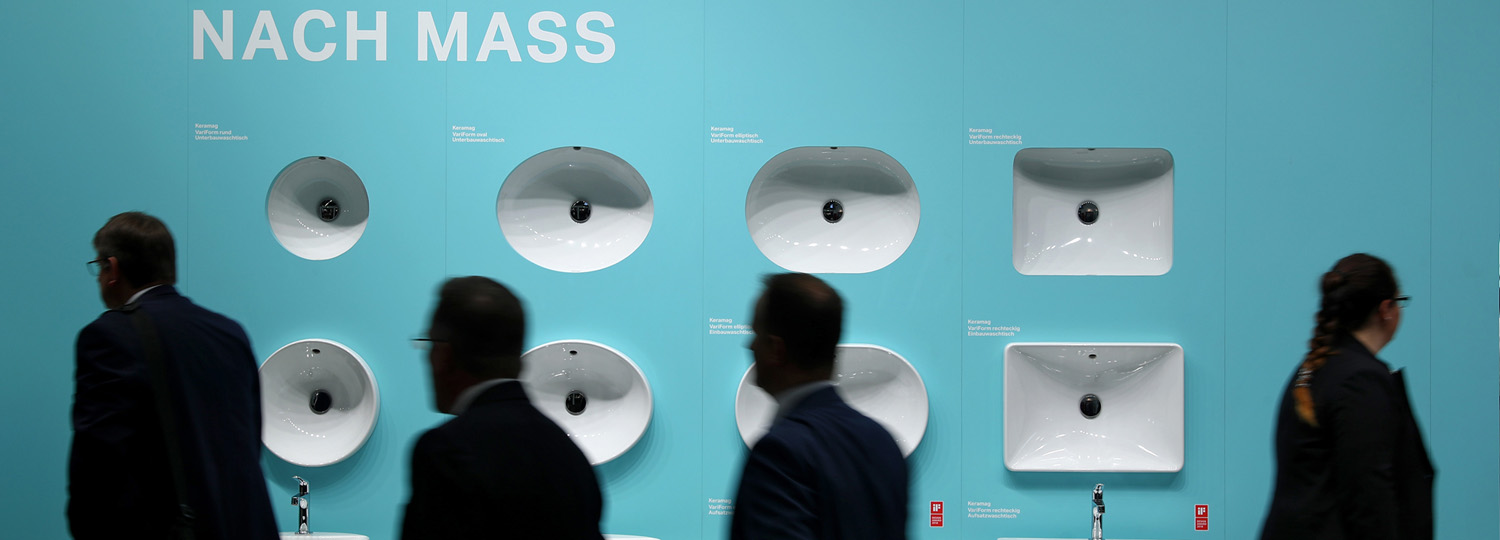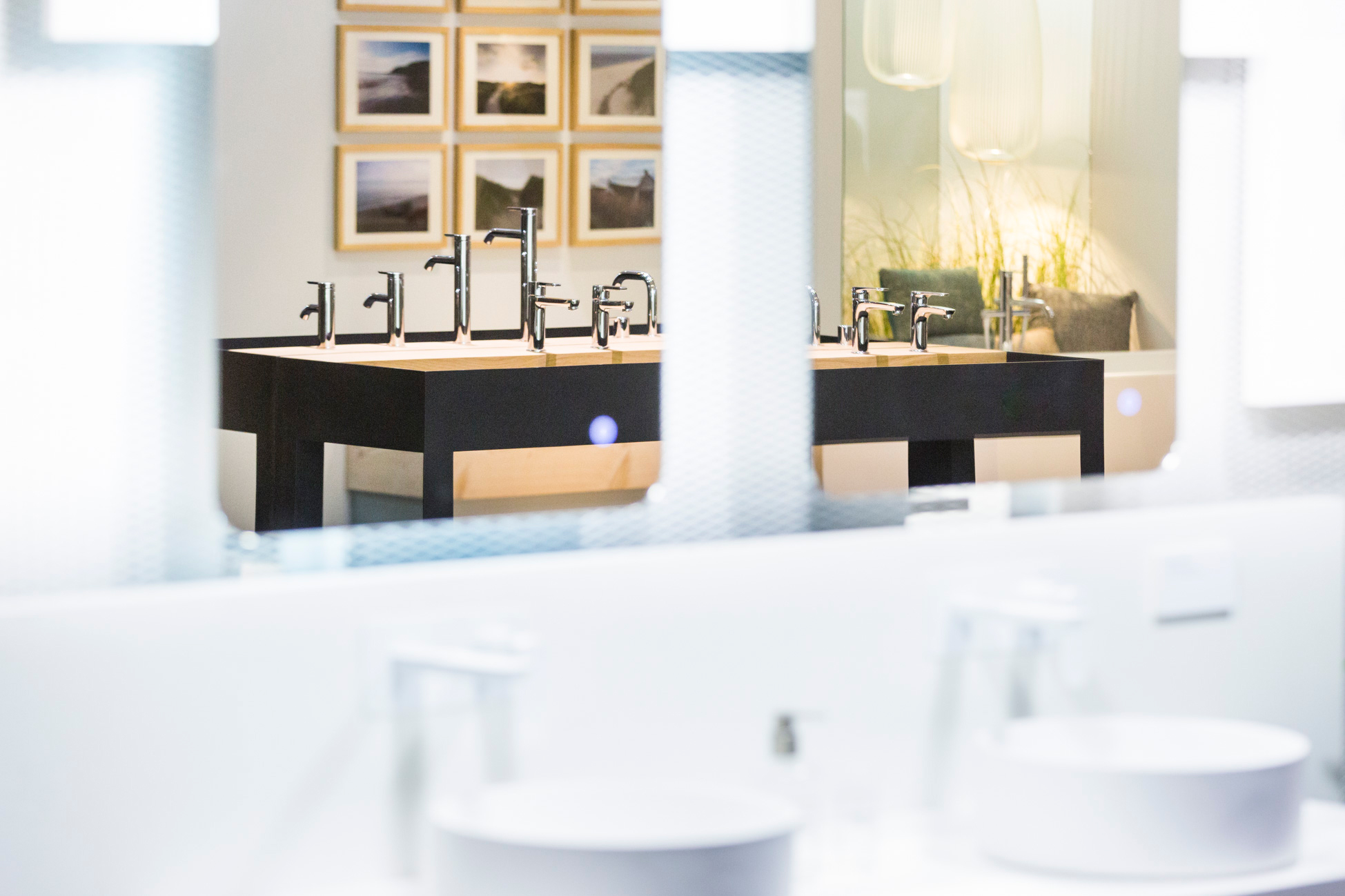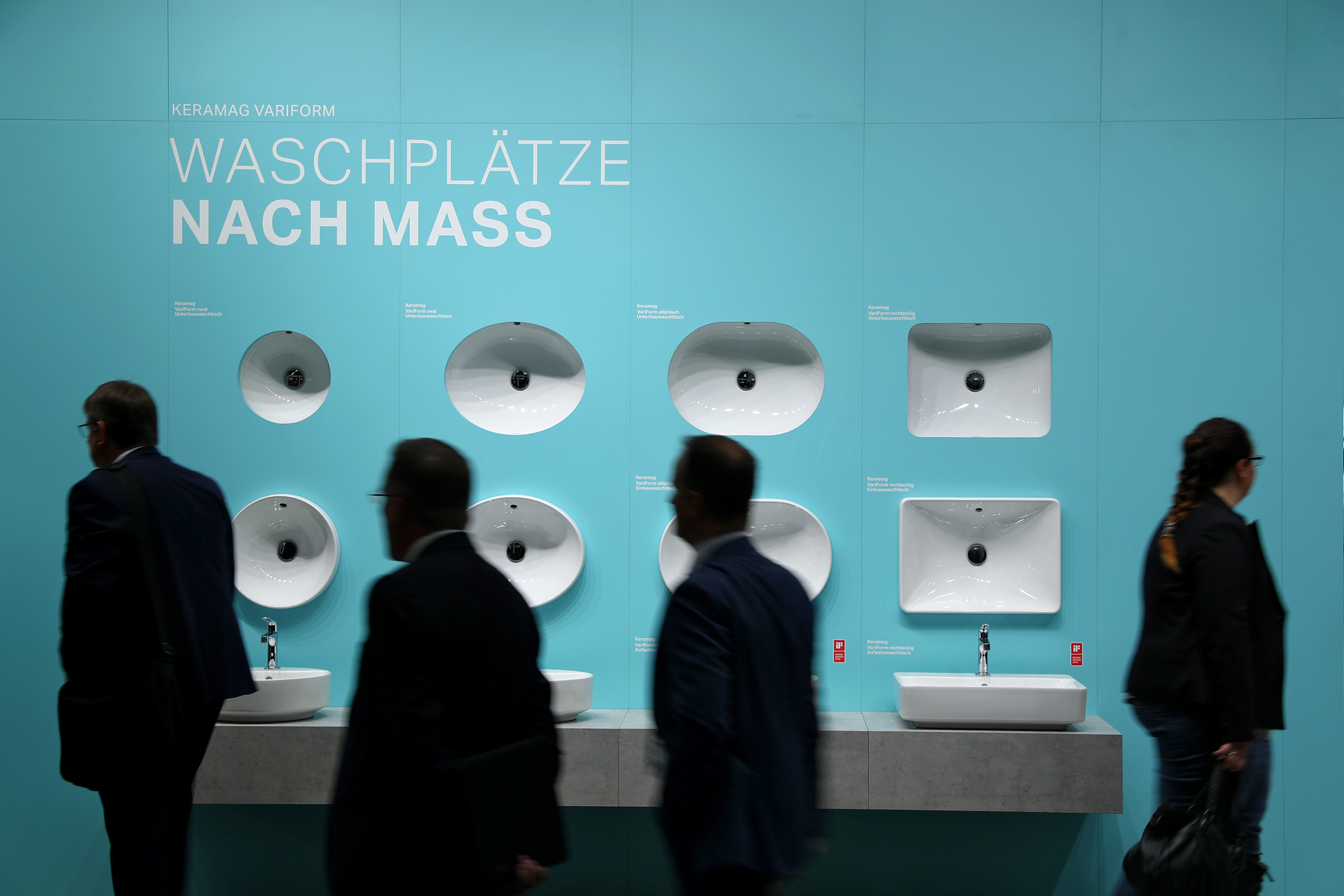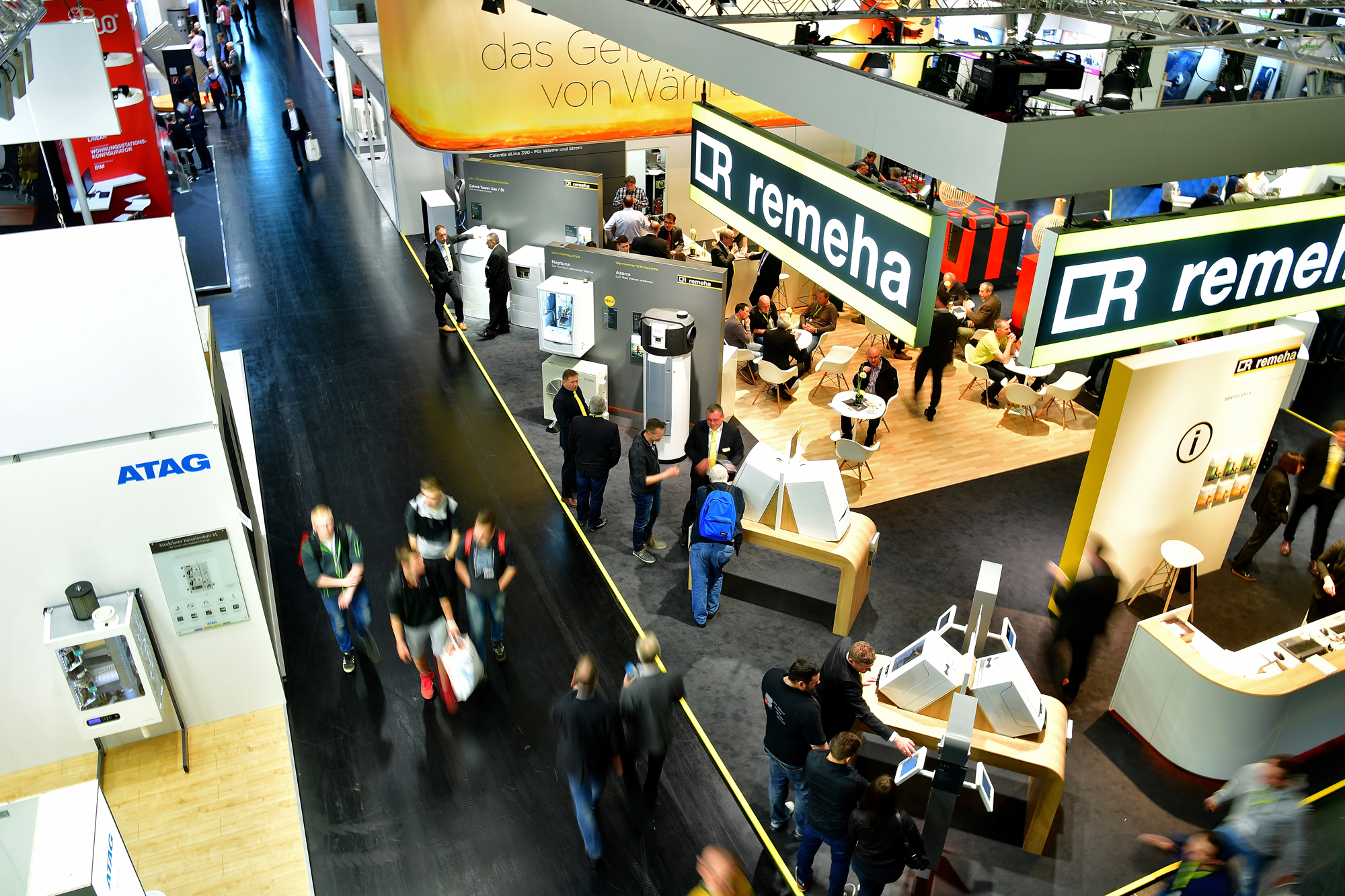Energy efficiency and digitalisation – the focal points for the SHK 2018 trade fair
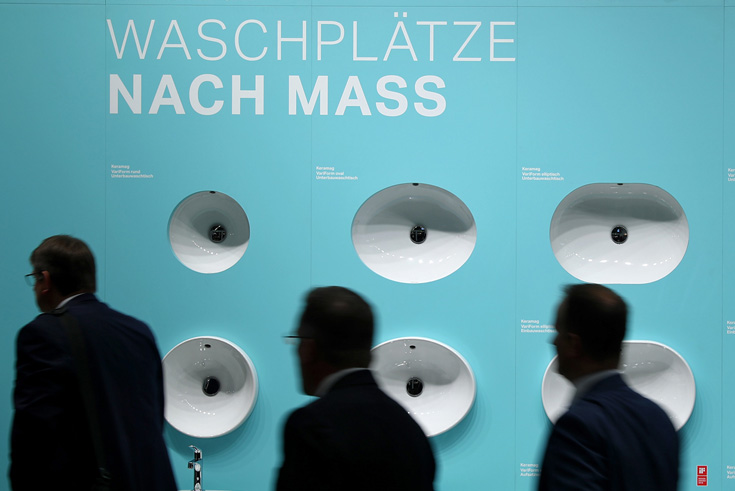
© Foto: GHM
This year's trade fairs – SHK Essen and IFH/Intherm in Nuremberg – reflected general trends within the construction industry, focusing among other things on energy efficiency and digitalisation.
In Essen, hybrid heating systems and the digitalisation of heating technology featured in the offerings of almost all manufacturers. According to the Federal Association of the German Heating Industry (BDH), these can reduce the energy consumption of buildings by up to 15%. In addition, ventilation and air-conditioning systems based on energy-saving and smart technologies are rapidly establishing themselves. Here, the core topics in in development and application are heat recovery and the automatic adjustment of the required output to demand. In the area of bathrooms and sanitary facilities, the trend is towards solutions that are intergenerational and integrated into the architecture. The current demand is for floor-level showers, easy-care materials, digitally-controllable taps, as well as hygiene topics such as drinking-water and drainage technology.
In Nuremberg, too, everything revolved around the topics of "Digital networking" and "Energy-efficient construction". In the "Innovative heating technology" theme area, the BDH, using an EEBUS demonstrator and with its focus on heat pumps, was able to illustrate how various components work in the smart home. In addition, planning and best-practice examples were presented in specialist forums. On Housing Sector Day, for example, the focus was on how digitalisation is changing energy management in multi-storey residential construction, as well as practical experiences with smart homes and acceptance, devices, costs and the use of networked building technology.
In Essen, hybrid heating systems and the digitalisation of heating technology featured in the offerings of almost all manufacturers. According to the Federal Association of the German Heating Industry (BDH), these can reduce the energy consumption of buildings by up to 15%. In addition, ventilation and air-conditioning systems based on energy-saving and smart technologies are rapidly establishing themselves. Here, the core topics in in development and application are heat recovery and the automatic adjustment of the required output to demand. In the area of bathrooms and sanitary facilities, the trend is towards solutions that are intergenerational and integrated into the architecture. The current demand is for floor-level showers, easy-care materials, digitally-controllable taps, as well as hygiene topics such as drinking-water and drainage technology.
In Nuremberg, too, everything revolved around the topics of "Digital networking" and "Energy-efficient construction". In the "Innovative heating technology" theme area, the BDH, using an EEBUS demonstrator and with its focus on heat pumps, was able to illustrate how various components work in the smart home. In addition, planning and best-practice examples were presented in specialist forums. On Housing Sector Day, for example, the focus was on how digitalisation is changing energy management in multi-storey residential construction, as well as practical experiences with smart homes and acceptance, devices, costs and the use of networked building technology.
